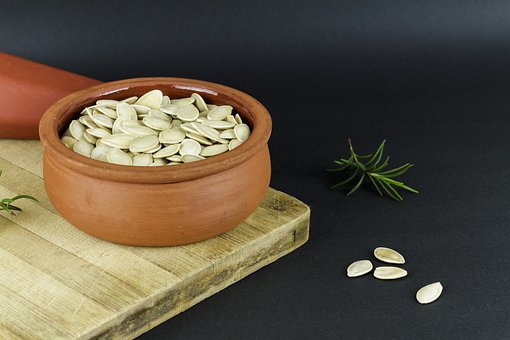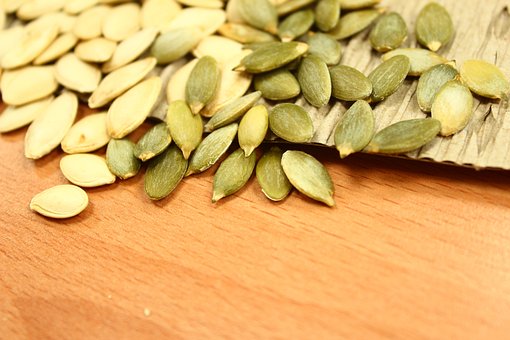Pumpkin seeds, also known as pepitas, are a nutrient-dense food that have been enjoyed for centuries. They are a great source of protein, healthy fats, and minerals, making them a valuable addition to any diet. In this article, we will discuss the nutritional value of pumpkin seeds per 100g and whether or not they are healthy for you.
First, let’s take a look at the nutritional value of pumpkin seeds per 100g. One hundred grams of pumpkin seeds contains approximately:
559 calories
30g of protein
44g of fat
12g of carbohydrates
5g of fiber
5g of sugar
Pumpkin seeds are also a good source of several essential minerals, including:
Iron: 7.2mg (40% DV)
Magnesium: 168mg (42% DV)
Zinc: 7.2mg (64% DV)
Copper: 1.7mg (89% DV)
Manganese: 2.5mg (125% DV)
Phosphorus: 676mg (68% DV)
They also contain antioxidants and small amount of vitamin K, vitamin E, vitamin B2 and folate.
Pumpkin seeds are an excellent source of healthy fats, including both monounsaturated and polyunsaturated fats. They also contain a good amount of Omega-3 and Omega-6 fatty acids, making them particularly beneficial for heart health. The high levels of magnesium found in pumpkin seeds also help to regulate blood pressure and keep the heart healthy.
Pumpkin seeds are also a good source of protein, making them a great option for vegetarians and vegans. The amino acid profile of pumpkin seeds is similar to that of soy, making them a good alternative for those who are allergic to soy.
In addition to their nutritional value, pumpkin seeds also have several health benefits. They have been shown to have anti-inflammatory properties, which can help to reduce the risk of chronic diseases such as heart disease and cancer. They may also help to improve sleep, as they contain tryptophan, which is converted to melatonin in the body.
Pumpkin seeds are also a good source of zinc, which is important for immune function and the healing of wounds. In addition, the high levels of magnesium found in pumpkin seeds can help to improve bone health and reduce the risk of osteoporosis.
Pumpkin seeds are also a good source of antioxidants, which can help to protect the body from the damage caused by free radicals. These antioxidants include carotenoids, such as beta-carotene and lutein, as well as vitamin E.
In conclusion, pumpkin seeds are a nutrient-dense food that can provide a wide range of health benefits. They are a good source of protein, healthy fats, and minerals, and have been shown to have anti-inflammatory properties and to improve sleep. They are also a good source of antioxidants, which can help to protect the body from the damage caused by free radicals. Whether you’re looking to improve your heart health, bone health, or immune function, pumpkin seeds are a great option.

 Home
Home Health
Health Diet & Nutrition
Diet & Nutrition Living Well
Living Well More
More












